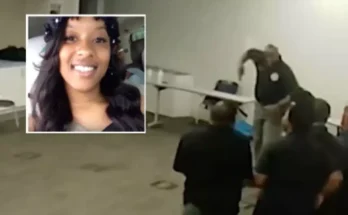They say a kiss can speak louder than words—and lately, your partner’s kisses might be telling a story all their own. If you’ve noticed more tongue, deeper contact, and longer, unhurried moments, it’s not just about passion. The way someone kisses—especially when it changes—can reveal emotional growth, vulnerability, and the state of the relationship itself.
When your partner starts using more tongue, it might look like a small shift in routine, but in the world of intimacy, it’s a big signal. It’s not just about physical desire; it’s about emotional exposure. Kissing is one of the most instinctive ways we connect, and when it becomes more open, expressive, or even experimental, it often means something deeper is evolving beneath the surface.
Physical Desire and Playfulness
A kiss heavy with tongue is often the body’s way of saying what words can’t: I want you. It’s a sign of heightened attraction, renewed curiosity, and a hunger to keep the spark alive. When your partner leans in with more passion, it’s not random—it’s communication.
“Trying new ways to kiss signals curiosity and investment in sustaining intimacy,” says relationship therapist Dana Meeks, LMFT. “It shows your partner isn’t complacent—they’re engaged, exploring, and still drawn to you.”
Sometimes, a more tongue-driven kiss is the equivalent of saying, I still crave you. It’s a return to that raw chemistry from the early days, but with a new layer of comfort and confidence. Physical touch, after all, is the simplest language of love.
The act of kissing stimulates the same parts of the brain involved in pleasure and attachment. That rush of dopamine and oxytocin—the “bonding chemicals”—isn’t just about arousal. It’s nature’s way of deepening connection and reminding both of you that desire is alive and well.
Emotional Sync and Safety
When two people kiss in sync—matching pace, pressure, rhythm—it’s a sign of emotional harmony. There’s an unspoken rhythm that only appears when both feel safe, accepted, and seen. More tongue doesn’t always mean more lust; sometimes it’s a sign that your partner feels secure enough to express themselves fully.
“People who feel emotionally safe in their relationships tend to kiss more openly,” Meeks explains. “They’re not performing. They’re present. That’s what makes a deep kiss so intimate—it’s not about technique; it’s about vulnerability.”
If your partner is meeting your energy, mirroring your movements, and losing themselves in the moment, it’s a reflection of trust. They’ve dropped their defenses. A kiss like that is less about heat and more about surrender—an emotional exhale between two people who no longer need to hide behind control.
Confidence, Personality, and Meaning
Kissing, like body language, reveals personality. Some people kiss with boldness—driven by confidence and desire—while others kiss slowly and thoughtfully, expressing tenderness and emotional depth. But when someone begins kissing with more intensity, especially after months or years together, it often reflects growth: emotional clarity, comfort, and certainty about what they want.
“Every person’s kiss carries a unique emotional fingerprint,” says Meeks. “It mirrors how they love—whether playful, passionate, gentle, or assertive. The more authentic a kiss feels, the more it reflects genuine connection.”
A deep, lingering kiss isn’t just an act of romance—it’s an emotional barometer. When it lingers, it often means I feel close to you. When it surprises you with passion, it might mean I’m still discovering you. When it’s gentle, almost reverent, it’s a quiet way of saying I’m grateful you’re mine.



